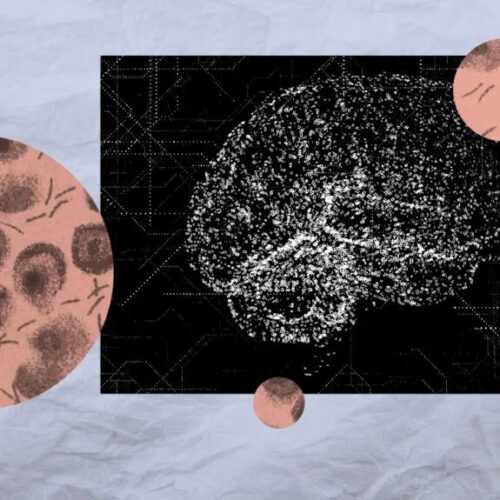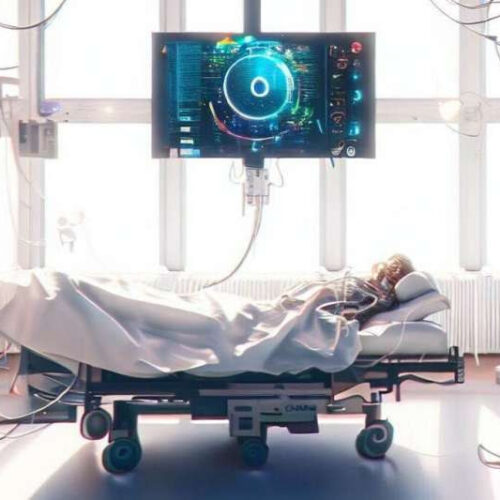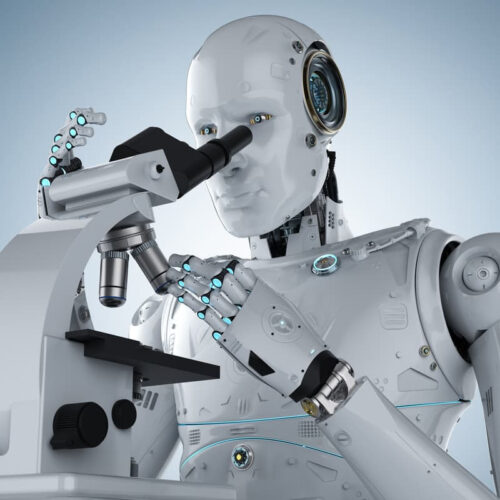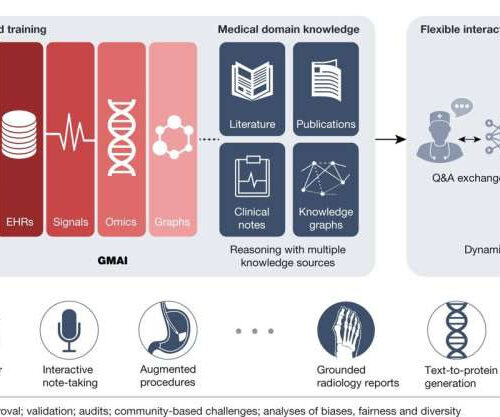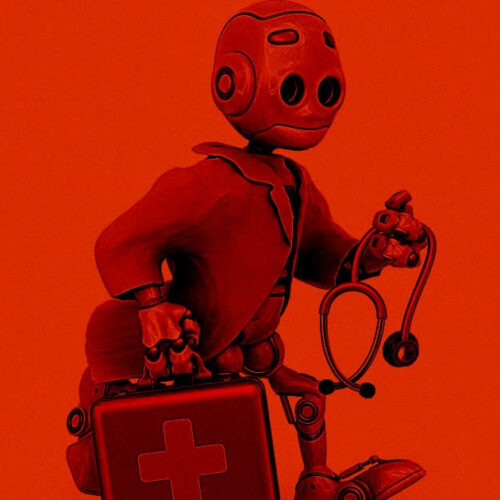New AI tools may aid the early diagnosis of Parkinson’s disease. Design by MNT; Photography by EDUARD MUZHEVSKYI/SCIENCE PHOTO LIBRARY/Getty Images Researchers developed an AI tool to predict Parkinson’s disease from blood samples. The tool can predict Parkinson’s 15 years before symptom onset with 96% accuracy. The underlying technology could possibly be adapted for diagnosing other conditions. Parkinson’s...
Category: <span>Artificial Intelligence</span>
AI found to perform better than humans in suggesting appropriate treatment steps in sepsis cases
by Vienna University of Technology A picture generated by an artificial intelligence showing how an AI in an ICU might look. Credit: Vienna University of Technology In the future, artificial intelligence will play an important role in medicine. In diagnostics, successful tests have already been performed: for example, the computer can learn to categorize images with...
Researchers use generative AI to design novel proteins
Researchers at the University of Toronto have developed an artificial intelligence system that can create proteins not found in nature using generative diffusion – the same technology behind popular AI image-creation platforms such as Midjourney and OpenAI’s DALL-E. The system will help advance the field of generative biology, which promises to speed up drug development by making the design and testing of entirely...
AI runs 10,000 experiments a day on bacteria to speed up discoveries
By Michael Irving May 08, 2023 A new AI platform called BacterAI can conduct thousands of experiments per day to learn about bacteria, even without any prior knowledge Depositphotos Scientific work often involves sifting through enormous amounts of data, a task that’s overwhelmingly mundane for humans but a piece of cake for artificial intelligence. A...
Machine learning tool may diagnose Parkinson’s years before symptoms appear
By Paul McClure May 10, 2023 New research has used a specially-designed machine learning algorithm to identify unique combinations of metabolites that may be able to detect Parkinson’s disease early Depositphotos Parkinson’s disease (PD) is growing more rapidly than any other neurological disease, which makes its early detection so important. Researchers have developed a new machine-learning tool that shows promise...
Can Jack-Of-All-Trades AI Reshape Medicine?
Researchers chart course for the design, testing, and implementation of next-gen AI in medicine. The vast majority of AI models used in medicine today are “narrow specialists” trained to perform one or two tasks, such as scanning mammograms for signs of breast cancer or detecting lung disease on chest X-rays. But the everyday practice of medicine involves an...
Epic, Microsoft bring generative AI to EHRs
BROCK E.W. TURNER ylem, Wikimedia Commons HIMSS 2023 kicked off Monday in Chicago. Follow our live blog for the latest updates and happenings from the conference. Epic Systems is working with Microsoft to integrate generative AI technology into its electronic health record software for the first time, the companies said Monday. The announcement was made in conjunction with the...
Creating an artificial pathologist
MAX PLANCK INSTITUTE FOR THE SCIENCE OF LIGHT IMAGE: THE TISSUE BIOPSY IS PROCESSED THROUGH A TISSUE GRINDER AND THEN ANALYZED USING REAL-TIME DEFORMABILITY CYTOMETRY (RT-DC). CREDIT: @ MARKÉTA KUBÁNKOVÁ – MAX-PLANCK-INSTITUT FÜR DIE PHYSIK DES LICHTS A team from the Max Planck Institute for the Science of Light (MPL) in Erlangen has created a...
The promise—and pitfalls—of medical AI headed our way
by Corey Binns, Stanford University Overview of a GMAI model pipeline. a, A GMAI model is trained on multiple medical data modalities, through techniques such as self-supervised learning. To enable flexible interactions, data modalities such as images or data from EHRs can be paired with language, either in the form of text or speech data. Next,...
CHATGPT CAN PASS MEDICAL TESTS, BUT ITS ACTUAL MEDICAL ADVICE IS A LOT MORE DUBIOUS
BY FRANK LANDYMORE DEVELOPMENTS A few months ago, OpenAI CEO Sam Altman posited that AIs like ChatGPT could serve as a “medical advisor” for poor people without healthcare. It sounded like a dumb idea then, and it’s sounding like a dumb idea now. In fact, according to new research from medical experts at Stanford University, even though OpenAI’s...

